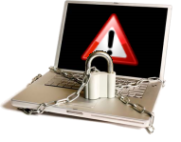Will it be our job to legitimise the web?


Over the course of the last 10 years, the Internet has slowly become a feeding ground for criminal activity; a hotspot for offending material and a shooting range for the police and intelligence services. The web, once seen as a vital network of intercommunicating devices should the US get nuked, then as a major educational advancement - now everything we hear (and this post, unfortunately, is no exception) is of a negative connotation.
For most of us, we've thankfully never seen something of a seriously horrific nature on the Internet, and by that I don't mean the infamous "two girls one cup" [NSFW] thing - that isn't even close to some of the offensive, disturbing and damaging material out there.
With all the effort that is going on to make the web safer, it's just not enough. Governments, website owners, ISP's, the telecommunications industry, and charities - there's a push in "wanting" to get these things off the web, but it's just not happening. People are getting caught, people are getting arrested and charged, thankfully some are being jailed, but it's not enough.
Just with many things out there - global warming and the realisation we're running out of essential fuel supplies, it is something that we, as the next generation of technology users and work employees, to find viable solutions to these issues. We are left with the mess from the previous generation, as we will no doubt leave one hell of a screwed up world to leave to the generation after us. But how?
That really is the million dollar question. People should know by now that once something is up on the Internet, it can never be taken back down again. From the BBC, studies have shown that 3 out of 4 children have seen distressing images on the Internet. Zoe Hilton, a policy advisor for the NSPCC (National Society for the Prevention of Cruelty to Children) said:
"Children are just a few clicks away from innocently stumbling across upsetting or even dangerous pictures and films such as adult sex scenes, violent dog fights, people self-harming and children being assaulted.
I'm not one of these self-righteous hypocrites who'll say, "porn is evil - it's a plague on our society", because you know as well as I do, that's utter crap. It's a sociological and society based practice; taking something private and intimate into a public environment for other's satisfaction. But the limit is when those who are vulnerable - children - get access to this material whether they intend to find it or not.
Child safety software works to a degree, but it doesn't work well enough. The majority of these software's work off a server-based block list, but with new sites and proxies appearing all the time, getting past these restrictions, again whether they intend to or not, is unacceptable.
Do you feel that the impact students will have on the future IT industry will be that of a positive one, where new technologies are introduced, developed and manufactured, or that we're left to clean up the mess from a worldwide resource which has become too powerful for those who misuse it? Let me know what you think. It'd be nice to get a bit of user dialogue going.
After all, the kids affected by negative web experiences could have a negative future impact, as they're the next generation of IT users too.